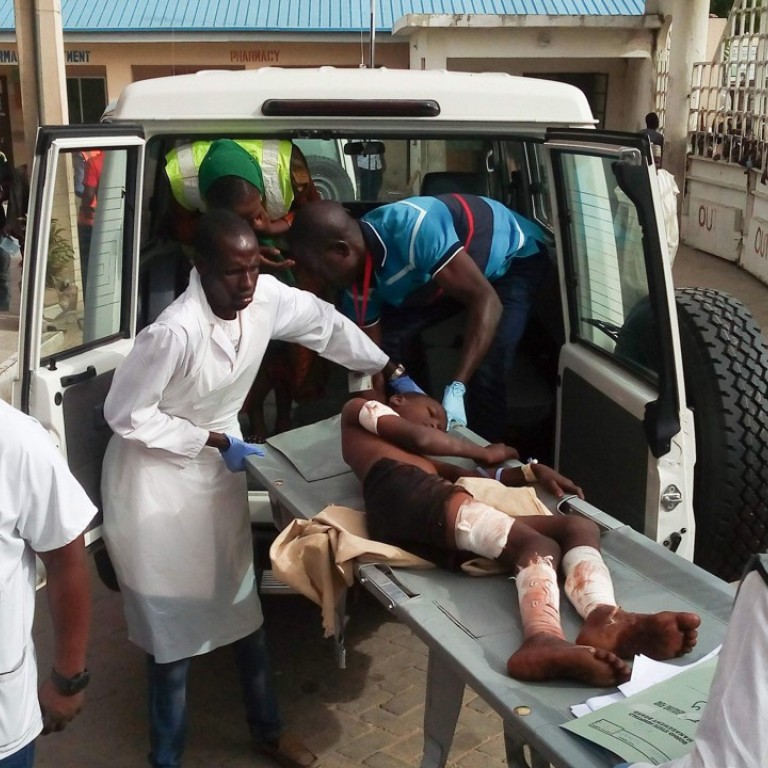
Officials find gruesome proof six little girls were suicide bombers whose attack killed 31 in Nigeria
The blasts targeted people returning from celebrating the Eid al-Fitr holiday
Suspected Boko Haram jihadists using girls apparently aged as young as seven as suicide bombers killed 31 people in an attack on a town in northeast Nigeria, a local official and a militia leader said on Sunday.
The official cited the decapitated heads of the girls, found at the scene, as proof of their role in the attacks.
Blasts ripped through the town of Damboa in Borno state on Saturday evening targeting people returning from celebrating the Eid al-Fitr holiday, in an attack bearing all the hallmarks of Boko Haram.
Following the suicide bombings, the jihadists fired rocket-propelled grenades into the crowds that had gathered at the scene of the attacks, driving the number of casualties higher.
“Most of the casualties were from the rocket projectiles fired from outside the town” after the bombings”, the official said.
“It was later realised the suicide attacks were carried out by six underage girls whose decapitated heads were found at the scene by rescue teams. They were between seven and 10 years, from their looks.”
Militia leader Babakura Kolo added: “There were two suicide attacks and rocket-propelled grenade explosions in Damboa last night which killed 31 people and left several others injured.”
The young suicide bombers detonated their explosives in Shuwari and nearby Abachari neighbourhoods in the town around 10.45pm, killing six residents, said Kolo, speaking from the state capital Maiduguri, 88km from the town.
“No one needs to be told this is the work of Boko Haram,” Kolo said.
It wasn’t clear if the young bombers were counted among the death toll of 31.
The gruesome attack is the latest example of Boko Haram’s continued threat to Nigeria and the Lake Chad region, said Ryan Cummings, Africa analyst at the Signal Risk consultancy in South Africa.
“Boko Haram still maintains both the intent and operational capacity to launch mass casualty attacks in parts of northeastern Nigeria,” Cummings said, despite the government’s repeated claims that the group is on the back foot.
The use of the rockets is “particularly conspicuous,” Cummings said, as it “indicates that the sect continues to have access to military-grade weaponry.”
“The Boko Haram insurgency is not showing any immediate signs of easing,” said Cummings.
The jihadist group has regularly deployed suicide bombers – many of them young girls – in mosques, markets and camps housing people displaced by the nine-year insurgency.
On May 1 at least 86 people were killed in twin suicide blasts targeting a mosque and a nearby market in the town of Mubi in neighbouring Adamawa state.
The attacks have devastated Nigeria’s northeast, one of the country’s poorest regions where illiteracy and unemployment are rampant.
Seeking purpose and money, disillusioned and jobless young men have turned to the radical Islam of Boko Haram, which decries Western colonialism and the modern Nigerian state.

.png?itok=arIb17P0)